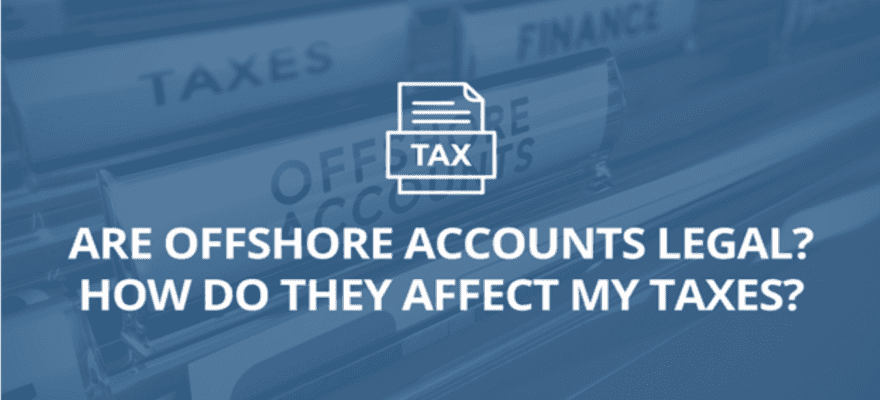On April 3, 2016, the German newspaper Süddeutsche Zeitung published the ‘Panama Papers,’ which were confidential documents belonging to Panama-based law firm Mossack Fonseca. Among other things, the papers exposed over 214,000 tax havens for politicians, celebrities, and current or former world leaders.
While most of the documents involved offshore business entities that were 100% legal, others identified shell corporations designed to evade taxes and dodge international sanctions. Suddenly offshore banking became synonymous with money laundering, tax evasion, and other criminal activity, and questions arose about the legality of offshore accounts.
Are Offshore Accounts Legal?
Yes. There is nothing illegal about using a bank outside of your country of residence unless you open the account with the intent of committing tax evasion. Many Americans open offshore accounts for reasons like the following:
- Higher interest rates. Banks in some countries pay a significantly higher interest rate on deposits.
- Financial security. Overseas accounts can protect your wealth against a potential decline in your home currency’s value. These accounts are also harder targets for frivolous lawsuits.
- Flexibility. Funds in an offshore bank account can be used to pay debts and expenses you might have outside the country.
Contrary to popular belief, you don’t have to be a millionaire to banks overseas. You can open an account with as little as a few hundred dollars. However, the World Trade Organization and the Organization for Economic Cooperation require banks to report information about their foreign account holders, and the Foreign Account Tax Compliance Act (FATCA) directs offshore institutions to inform the IRS about the financial holdings of U.S. citizens.
How Do Offshore Accounts Affect Your Taxes?
You are still responsible for paying U.S. taxes if you earn money abroad or hold it in an offshore account. If you live and work in a foreign country, the Foreign Earned Income Exclusion may allow you to exclude up to $105,900 of your earned income, but the rest (like interest income and dividend income) is taxable.
FATCA requires you to file a Form 8938 if you meet the following criteria:
- You are required to file a tax return, and
- Your foreign-held assets are worth $50,000 on the final day of the tax year or more than $75,000 at any time during the tax year (if you’re single) OR
- Your assets are worth over $100,000 on the final day of the tax year or over $150,000 at any point during the tax year (if you’re married and filing jointly)
If you are required to file Form 8938 and fail to do so, you can be penalized up to $50,000 in addition to a 40% accuracy-related penalty.
If you hold funds in foreign accounts that exceed $10,000 in the aggregate, you must file a form called the Report of Foreign Bank and Financial Accounts (FBAR) with the IRS. The filing deadline is April 15, or October 15 with an automatic extension. In addition to the penalties for failing to file Form 8938, you also face a penalty of $10,000 per violation for failing to file FBARs timely. If the government thinks you did not file wilfully, the penalty is the greater of $100,000 or 50% of the amount in the account at the time of the violation.
What If You Owe Back Taxes?
If you have foreign earnings that you did a report on your previous tax returns, the IRS has several different programs to get you back in compliance. In the Updated Voluntary Disclosure Practice, you can come forward and arrange to pay all taxes owing without worrying about criminal liability.
To qualify for the program, you must file original or amended tax returns and FBARs for the past six years and pay any tax, interest, and penalties owing. If you are being audited by the IRS, it is too late to enter the program.
Speak with a New Jersey Foreign Income Tax Attorney
Holding money in an offshore bank account isn’t illegal, as long as you pay the appropriate taxes. If you failed to disclose your foreign accounts and want to come forward, contact Paladini Law by calling 201-381-4472 or filling out our online form. Attorney Brad Paladini will review your eligibility and help you negotiate a payment plan with the IRS so that you can catch up on your obligation and face the future with peace of mind.



